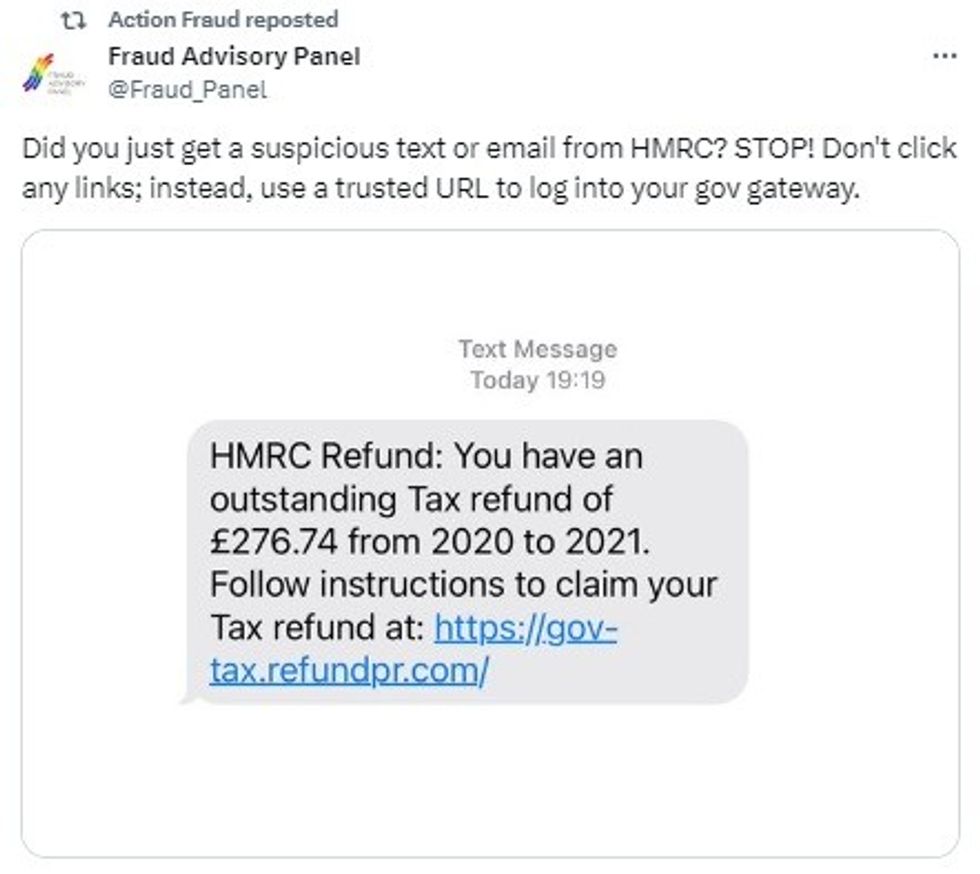HMRC has issued a warning about bogus tax refund messages
GETTY
HMRC will never email notifications about tax refunds
Don't Miss
Most Read
Trending on GB News
Taxpayers are urged to be on alert as fraudsters are attempting to steal personal and financial information such as bank details.
In one type of scam, criminals are posing as HMRC and contacting victims about a bogus tax refund.
The Fraud Advisory Panel, a charity aiming to prevent, detect and deter fraud and financial crime, is urging people against clicking any links if they are sent a “suspicious” message.
Writing on X, formerly known as Twitter, they warned: “Did you just get a suspicious text or email from HMRC? STOP! Don't click any links; instead, use a trusted URL to log into your gov gateway.”
Do you have a money story you'd like to share? Get in touch by emailing money@gbnews.uk.

The Fraud Advisory Panel issued a warning about the bogus HMRC tax refund text message
HMRC | X | @FRAUD_PANEL
They proceeded to share a screengrab of one such scam message, which was retweeted by Action Fraud.
The bogus text message read: “HMRC Refund: You have an outstanding Tax refund of £276.74 from 2020 to 2021.”
It proceeded to tell people to “follow instructions to claim your tax refund” by clicking a web link which it provided.
Tellingly, this website URL was similar to, but not the same as, the government website Gov.uk.
HMRC does send text messages to some people, and in the text message, the department might include a link to GOV.UK information or to the HMRC webchat.
However, HMRC will not ask for personal or financial information when sending text messages.
The Gov.uk website says: "We advise you not to open any links or reply to a text message claiming to be from HMRC that offers you a tax refund in exchange for personal or financial details."
If a person receives a suspicious text message, they're urged to send it to 60599 (network charges apply) or email phishing@hmrc.gov.uk then delete them.
LATEST DEVELOPMENTS:
Fraudsters have also targeted people using other forms of communication, such as WhatsApp and email.
If a person receives a tax refund message over WhatsApp purporting to be from HMRC, they can be assured it's not genuine as HMRC has confirmed it will never use the platform to contact customers about a tax refund.
A type of scam call which has been seen in the past sees the caller claim to offer a tax refund, then ask the recipient to provide their bank or credit card information.
HMRC said: "If you cannot verify the identity of a caller, we recommend that you do not speak to them."








